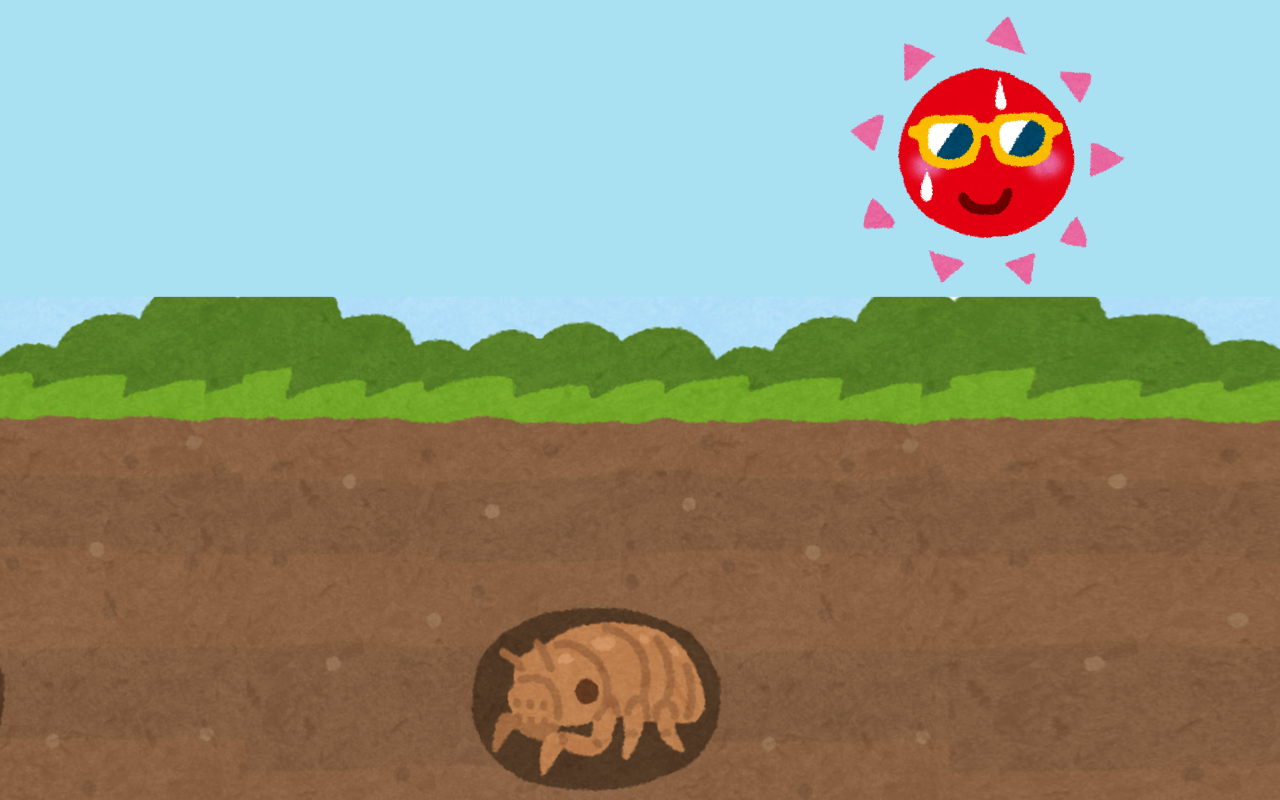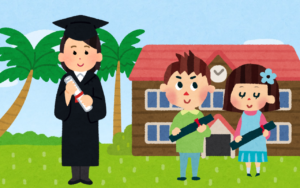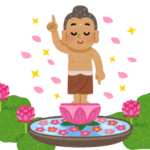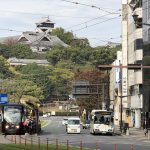
The rainy season ended on June 26, much earlier than usual, and the heat wave continued day after day.
Usually, when the cicadas start chirping, I judge that the end of the rainy season is near, but this year I have not heard their chirping yet.
It is said that not only a rise in temperature but also a good amount of rainfall is necessary for the underground cicada larvae to hatch.
This year's rainy season in the Kanto region was not only short, but also very little rain. This means that many cicadas are not ready to emerge from the ground.
The sound that symbolizes summer in Japan is the sound of cicadas. The most common is the "minmin-zemi," or "minmin" cicada. The other two are the kuma-zemi, which chirps loudly and ”washi-washi", and the abura-zemi, which sizzles and squeaks.
When I hear these cicadas chirping, I feel a rush of sweat and crave ice cream or shaved ice.
Cicadas are quite loud when heard outdoors. I once had an abra-zemi fly into my room, and it was so loud that I could not hear the other person even if I was talking to him or her loudly. They are so loud that you cannot hear them even if you are having a loud conversation with them.
Even though they are the same cicadas, I feel somewhat sad when I hear the call of the higurashi in the late summer evenings.
Still, it is said to be quite loud when heard up close.
Typhoon No. 4 is approaching the Japanese archipelago, and the Kanto region is also expected to see rain from today. Once the typhoon passes, we are likely to hear the sound of cicadas.









